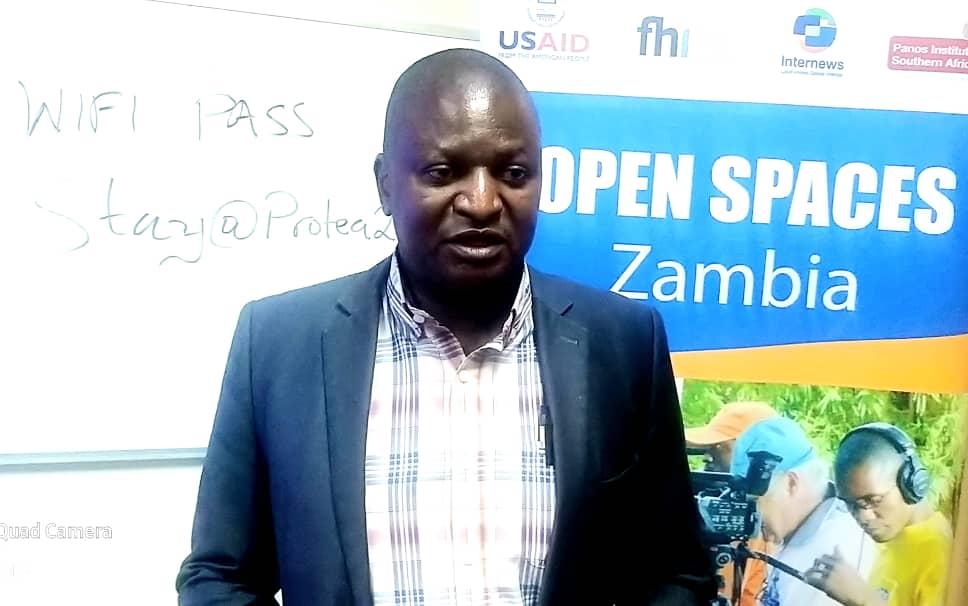“Empowering public broadcasting”
… Sifile says this will ensure independence, impact, and the ability to navigate digital challenges.

By Francis Maingaila
Lusaka, Zambia24 (23-04-2024) – The Panos Institute Southern Africa (PSAf) convened a consortium of Zambian stakeholders to discuss safeguarding the independence of public broadcasting. Key strategies include ensuring editorial autonomy, controlling programming, and separating editorial content from commercial interests.
Vusumuzi Sifile, Executive Director at PANOS, highlighted the revision of the ZNBC Act and the proposed Zambia National Broadcasting Corporation Bill.
“These aim to enhance accessibility of public service broadcasting across various platforms and devices, emphasizing innovative distribution approaches,” he said.
Sifile stressed the importance of consulting stakeholders to gather insights on the new ZNBC bill, with a focus on making ZNBC accessible to all Zambians, independent of affiliation or status.
The ongoing review underscores the necessity of ensuring autonomy and preventing governmental influence through independent appointments.
He observed that despite challenges, examples like the South African Broadcasting Corporation, demonstrate that functional public service broadcasters can operate independently and report impartially on government activities.
He said diversifying funding sources beyond government institutions is crucial to maintain editorial integrity and reduce governmental influence.
He said engaging with the private sector and other institutions can enhance financial independence and better equip public service broadcasters to serve the public.
“Appointing people committed to financial independence and editorial integrity enhances public trust and attracts potential business partners,” he said.
He said establishing appropriate policy and legal frameworks is crucial for ensuring editorial independence and financial sustainability.
“Public service broadcasters should aim for financial self-sufficiency while being open to support from the government and other entities,” he said.
He said cross-promotions should comply with Broadcasting Code regulations, and charity appeals should be broadcast free of charge, alongside impartial news and original programming, to maintain integrity in public service broadcasting.
“The broadcasting industry is rapidly evolving, emphasizing the importance of collaboration among broadcasters to expand audience reach,” he said.
“Collaboration with Pay TV providers and commercial competitors can further enhance reach and impact,” he added.
He said public service broadcasters must prioritize the public interest above all else, following ethical journalism principles and maintaining autonomy from commercial influences.
“Consultations with stakeholders will guide engagements with the government and international treaty parties.,” he said.
Guess Nyirenda, president of Operations Youth Vote, stresses the importance of prioritizing public interest over commercial interests in public service broadcasting.

Nyirenda emphasizes neutrality and accessibility, advocating for a platform accessible to all, irrespective of political or societal affiliation.
Zanji Sinkala, a seasoned journalist, highlights challenges faced by media organizations, including threats to editorial independence and balancing equality and taste in storytelling.

She said collaboration among stakeholders is crucial for credible journalism despite external pressures.
Sinkala advocates for transparency in funding sources, robust editorial policies, and protecting journalists from external influences.
Promoting equality and taste in storytelling requires diverse hiring practices, sensitivity training, and regular audience feedback.
He emphasized that fostering collaboration among stakeholders is crucial for building trust and collective action in the media industry.
Additionally, he noted that establishing industry-wide standards, platforms for dialogue, and cross-sector partnerships also play a significant role in enhancing media integrity.
She said upholding editorial independence, prioritizing equality, and fostering collaboration enable media organizations to fulfill their role as guardians of truth in the digital age.
